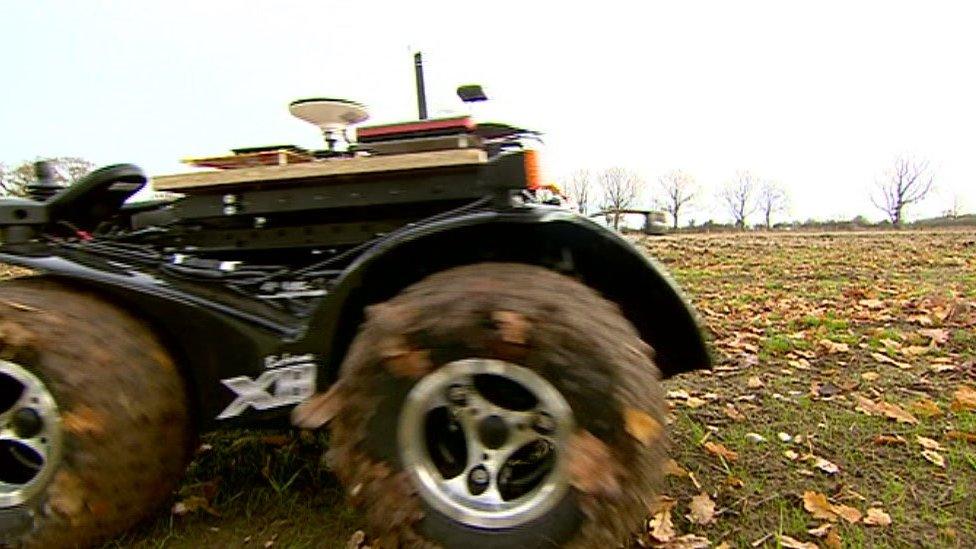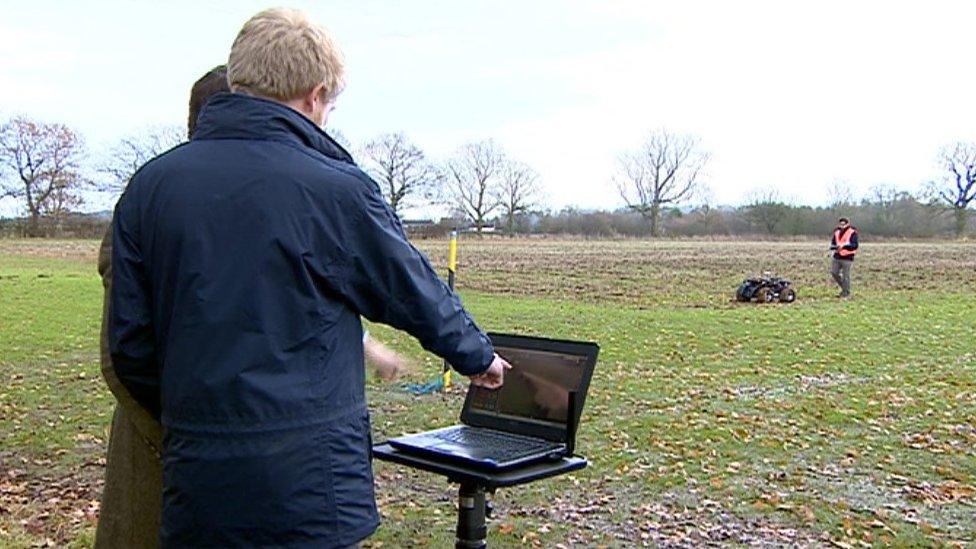A world's first robot farming experiment gets under way
- Published

This small robot vehicle is being used to test the driving system that will be fitted to a compact tractor
In a soggy Shropshire field on the edge of the Harper Adams University campus an amazing experiment, external is just beginning.
Can you plant, grow and harvest a hectare of spring barley using only robots, external?
If they pull this off, this small team will be the first in the world to manage such a feat.
But it is not going to be easy.
People are forbidden
I was there as they started the project and brought robots to the field for the very first time.
The ground rules are simple.
There's a hectare of land which will be fenced off and only robots and machines will be allowed inside with the odd drone flying overhead.
People are completely forbidden - hence the project nickname, "The hands free hectare".
The crop chosen by Harper Adams, external and Precision Decision Ltd, external is spring barley, which means after harvest the end result can be used to make robot beer.
So there's everything to play for.
Small is beautiful?

The team are currently putting the test robot through its paces
There's a really fascinating argument at the heart of all this.
A modern tractor can drive itself using GPS and decide how much pesticide or fertiliser to apply and where to do it.
In theory making the tractor completely autonomous is the next logical step.
After all that's what is happening with self-driving cars.
But these tractors are also really big.
Better shape
That means they can crush the soil which reduces yields and their size also limits the accuracy when applying those expensive chemicals.
The alternative is the approach being taken at Harper Adams.
Smaller, lighter, cheaper machines that achieve the same result but leave the soil in better shape and which can tackle weeds and more with pinpoint accuracy.
It's a view that says future farming will involve a flock of smaller robot machines rather than one massive self-driving tractor.
Is this the future?
So how likely is all this?
Will we really see driverless tractors quietly moving through fields of wheat and barley?
Well one American report suggested the global market for agricultural robots could be worth £13bn by the year 2020.
Here in the UK, the question of who will be working in our fields post-Brexit is bringing a new focus on to the whole issue of automation.
First big test
For now the team is waiting for the delivery of the compact tractor that will be doing most of the work from planting to harvest.
Ahead of its arrival they are testing the robot driving system on a smaller machine.
They have three months to get everything right before they face their first big test, planting the barley.
So will the young, nimble team from Shropshire beat some of the world's biggest machinery companies to this extraordinary goal?
An entire farming cycle carried out by robots?
Well we'll be there every step of the way to find out.
Which is another level of stress for the team because nothing makes technology go wrong like training television camera on it.